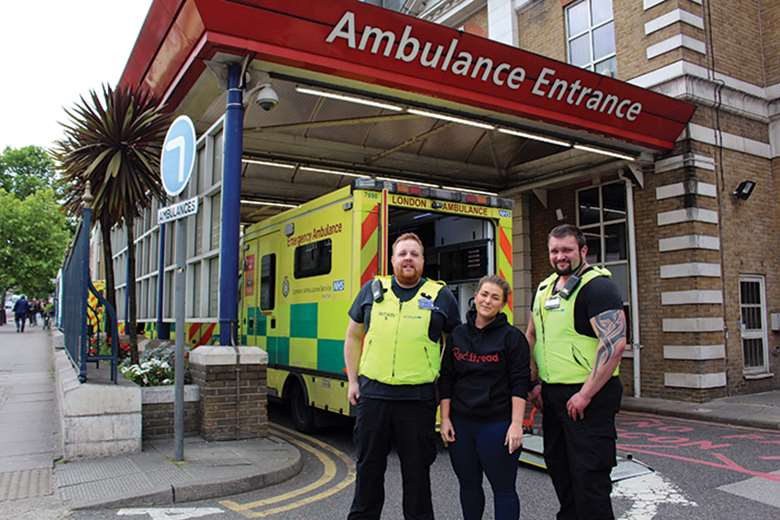Overhaul in youth work careers
Derren Hayes
Tuesday, August 29, 2017
Latest data underlines changes in the type of settings where youth workers are delivering support.

Latest youth work training figures show a decline in the number of people undertaking youth and community work courses, and in those gaining employment upon completion of their degree.
The National Youth Agency's Annual Monitoring of Youth and Community Work Programmes reveals the latest trends in youth work training. It shows that 673 students were recruited in 2015/16, compared with 793 the year before. This is just under half of 2009's figure of 1,277 and down 278 on 2011's tally of 951.
On average, higher education institutions managed to recruit 97 per cent of their expected target. However, of 51 programmes monitored, just 14 met or exceeded this target and nine failed to recruit any students.
Beyond these headline findings, the data also gives an insight into the changing nature of the youth work profession.
Changing trends
While there has been little change in the age and gender profile of youth work students in the past two years, the proportion of undergraduates of black or black British ethnicity has risen from 13 to 19 per cent, while the proportion from mixed heritage background has doubled to 6.7 per cent. Accordingly, the proportion of students of White British heritage fell from 75 to 65 per cent over the year.
Another emerging trend is a shift away from graduates working in the statutory and voluntary sectors to a wider variety of employers.
Of the 639 graduates who submitted destination information in 2015/16, the proportion employed by voluntary sector organisations fell to 21.5 from 24.4 per cent in 2014/15. In addition, those moving into statutory youth work roles fell to just 3.5 per cent from 8.3 per cent last year, while those finding jobs elsewhere in local authorities fell from 4.1 to 2.9 per cent over the same period.
Due to the decline in youth and community work undergraduates in recent years, the majority of destination categories recorded a fall in the past 12 months. However, there were some exceptions: the number employed by housing agencies, drug services and health bodies all rose, as did those gaining jobs in grant-funded work such as fixed-term youth projects.
These trends reflect the prolonged funding and staff cuts to local authority youth services, and how reductions in local and national government spending is filtering through to charities.
The rise in youth work graduates in housing, drugs and health settings, although starting from a low base, suggest their skills are gaining wider recognition.
For example, last month Nottinghamshire County Council announced youth workers are to support children and young people treated at two hospitals. Such initiatives build on youth work programmes run from hospital emergency departments, which have been growing in number and influence in recent years (see box).
Changing face of youth work
Leigh Middleton, managing director of the National Youth Agency, says graduates are now most likely to be employed in the voluntary sector or in a range of settings where youth work is integral but not discernible in the job title. "The numbers of youth and community work graduates following the traditional path to local authorities as professional youth workers has plummeted from a third in 2013 to just three per cent last year," he says.
"This changing face of youth work employment is chicken and egg - the absence of traditional youth work roles is impacting on recruitment to higher education courses, while, compounded by severe cuts to public services and fewer graduates, youth work roles have broadened too."
He says that more research is to be carried out to "understand more about developing routes to make youth work training as accessible as possible".
Adam Muirhead, chair of the Institute for Youth Work, adds that the variety of job destinations is likely to increase further. "The practice of more purist forms of youth work has been eroded through austerity, especially in the statutory sector, leaving much of the work to the voluntary sector.
"We would expect fewer graduates to go into local authority youth work roles, but would hope that voluntary organisations recognise the wealth of skills and knowledge that graduates of professionally validated courses bring with them."
HOSPITAL-BASED YOUTH WORK IN ACTION
Redthread - Engaging violent crime victims
The south London youth charity has youth workers in the capital's four major trauma centres - King's College Hospital in Camberwell, St George's Hospital in south west London, the Royal London Hospital in east London and St Mary's Hospital in north west London. The specialist youth workers support young victims of crime and help those involved in gang violence to leave that way of life behind.
The Navigators - Tackling repeat attendances
Set up in 2005 by Strathclyde Police, the Navigators tackle repeat attendances of trauma, mental health, alcohol, drugs, domestic abuse, poverty, homelessness and unemployment in Scotland's main hospitals. Funded by the force's Violence Reduction Unit, they work in emergency departments in Glasgow and Edinburgh supporting people of all ages to tackle social problems that have led to their admittance.
Nottinghamshire - Building emotional resilience
The year-long pilot scheme run by Nottinghamshire County Council and Mansfield and Ashfield Clinical Commissioning Group will see two youth workers visiting the children's ward at King's Mill Hospital three evenings a week. Youth workers will also support 10- to 19-year-olds at the Sutton-in-Ashfield hospital. The youth workers will have a particular focus on building the young people's emotional resilience.




